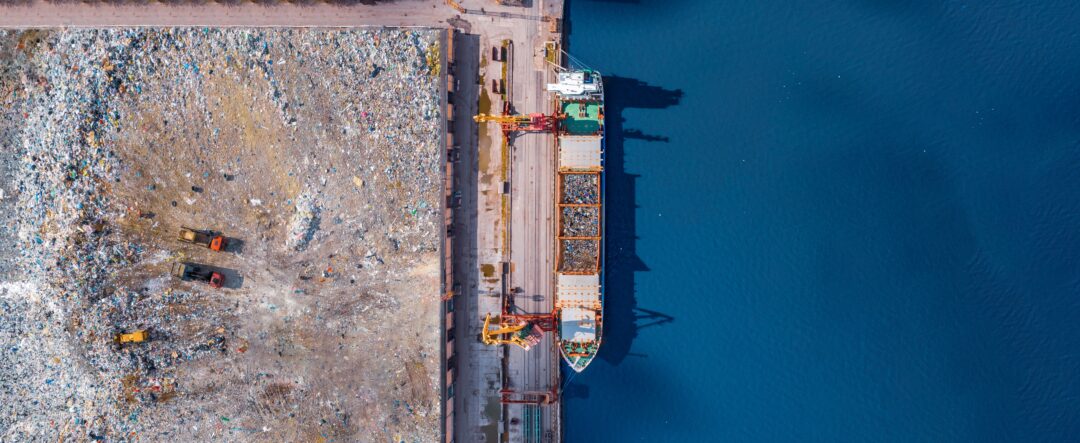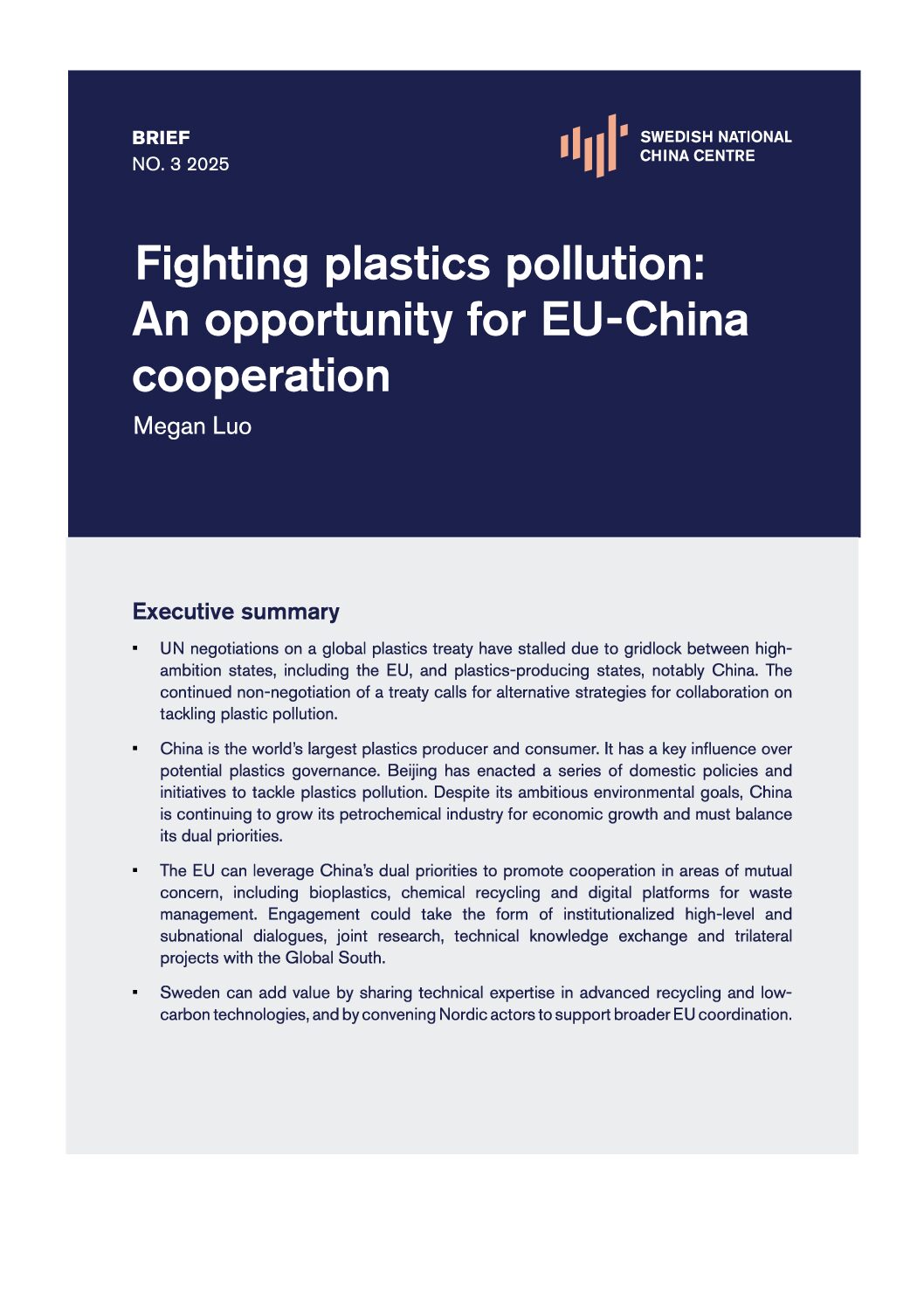
TT / Shutterstock
Summary
- UN negotiations on a global plastics treaty have stalled due to gridlock between high ambition
states, including the EU, and plastics-producing states, notably China. The continued non-negotiation of a treaty calls for alternative strategies for collaboration on tackling plastic pollution. - China is the world’s largest plastics producer and consumer. It has a key influence over potential plastics governance. Beijing has enacted a series of domestic policies and initiatives to tackle plastics pollution. Despite its ambitious environmental goals, China is continuing to grow its petrochemical industry for economic growth and must balance its dual priorities.
- The EU can leverage China’s dual priorities to promote cooperation in areas of mutual concern, including bioplastics, chemical recycling and digital platforms for waste management. Engagement could take the form of institutionalized high-level and subnational dialogues, joint research, technical knowledge exchange and trilateral projects with the Global South.
- Sweden can add value by sharing technical expertise in advanced recycling and lowcarbon technologies, and by convening Nordic actors to support broader EU coordination.




